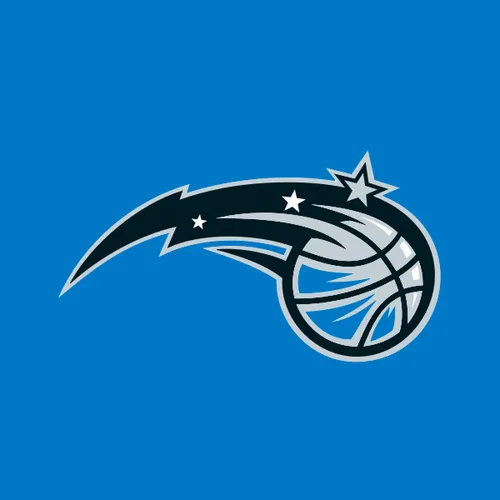







20 popular sports management jobs and where you can find them

In the dynamic world of sports, behind the scenes, a myriad of professionals ensure that every aspect of the industry operates seamlessly. Spanning across logistics, public relations, business, and technology, sports management offers a vast array of roles tailored to uphold the integrity, profitability, and excitement of the sports realm.
Key figures like Sports Agents advocate for athletes' interests, while General Managers oversee strategic decisions shaping a team's future. Directors of Player Personnel and Athletic Directors delve deep into talent management and institutional oversight respectively.
As sports intertwine with media, roles like Broadcast Coordinator and Digital Content Manager become pivotal in molding the audience's experience. On the business forefront, Ticket Sales Managers, Sponsorship Coordinators, and Merchandising Managers ensure that the financial machinery runs without a hitch.
Ensuring athletes remain at their peak, Sports Psychologists and Nutritionists play crucial roles. Meanwhile, Fan Engagement Managers strive to enhance the enduring bond between fans and the sport.
These roles, among others, collectively epitomize the multifaceted domain of sports management, revealing an industry as varied and vibrant as the games we love.
What follows is a deep dive into the 20 most popular sports management jobs found on Rebound.
We’ll outline the day-to-day responsibilities of each role, explain what skills you need to succeed, and discuss some of the challenges you could face once you’re in your dream position.
1. General Manager
- Responsibilities: The GM is the beating heart of a sports team's operations. Their vision encompasses all, from strategizing player acquisitions, coaching appointments, to aligning with the team's owner regarding the future trajectory and ethos of the team.
- Required Skills: An instinct for strategic maneuvers, adept leadership, decisive decision-making, and an ingrained understanding of the sport's nuances form the cornerstone of a GM's skill set.
- Challenges: The role is a double-edged sword. While successful team strategies catapult the GM to accolades, any lapse or perceived failure makes them vulnerable to media scrutiny and wavering fan loyalty.
2. Sports Agent
- Responsibilities: Acting as pivotal ambassadors for professional athletes, sports agents take the center stage in negotiating contracts that encompass player's salaries, endorsements, and post-career opportunities. Collaborating with legal personnel, they ensure the athlete's rights are not infringed upon and that all engagements align with the athlete's brand and future aspirations.
- Required Skills: Apart from masterful negotiation capabilities, an intricate understanding of contract law and sports-specific stipulations are essential. Building and nurturing relationships across the industry coupled with a nuanced understanding of the sports landscape are imperative.
- Challenges: Entering the arena of sports representation is no small feat. An agent's reputation hinges on trust and results. As earnings are largely commission-based, agents face the pressures of fluctuating income, especially during their nascent stages.
3. Director of Player Personnel
- Responsibilities: With a laser-focused objective on talent management, this role encompasses scouting prodigies, rigorous talent evaluations, attending global scouting platforms, and ensuring the team's roster remains competitive.
- Required Skills: An encyclopedic knowledge of the sport, a discerning eye for talent potential, coupled with impeccable organizational and eloquent communication skills are paramount.
- Challenges: The relentless quest for the next superstar and the pressure of delivering consistent results in player acquisitions can be daunting.
4. Sports Marketing Manager
- Responsibilities: This orchestrator of brand image is tasked with enhancing the visibility of sports entities, be it teams, individual athletes, or expansive leagues. They helm innovative marketing campaigns, foster sponsorship alliances, and ride the wave of social media to engage and expand fan bases.
- Required Skills: A potent cocktail of creativity, astute understanding of shifting marketing dynamics, digital platform prowess, and an innate ability to resonate with fan sentiments are crucial.
- Challenges: The volatile nature of media platforms and evolving fan allegiances demands agility and foresight in crafting adaptable marketing blueprints.
5. Event Coordinator
- Responsibilities: The maestro behind the scenes, they ensure sports events unfold seamlessly, from ticketing logistics, security orchestration, vendor coordination to troubleshooting unforeseen challenges.
- Required Skills: Organizational finesse, adept multitasking, quick-witted problem-solving, and fluid communication skills form the bedrock of this role.
- Challenges: The unpredictable nature of live events, be it weather aberrations or technical glitches, mandates adaptability and resilience.
6. Facility Manager
- Responsibilities: The custodian of sports infrastructures, they oversee the seamless functioning of venues, ensuring optimal conditions for both players and spectators. From routine maintenance, technological upgrades, security protocols, to curating event schedules, their role is multifaceted.
- Required Skills: Proactive problem-solving, meticulous organizational skills, and a robust understanding of the facility's infrastructure are key.
- Challenges: Juggling multiple events within condensed timelines and ensuring unwavering safety standards can be arduous.
7. Public Relations or Media Relations Manager
- Responsibilities: As the gatekeepers of a sports entity's public image, they navigate media interactions, strategize press communications, and at times, douse the fires of public controversies.
- Required Skills: Exceptional communication abilities, intricate understanding of media dynamics, and an uncanny knack for gauging public sentiment are indispensable.
- Challenges: The unpredictable nature of media cycles, coupled with potential PR crises, demands tenacity and damage control acumen.
8. Ticket Sales Manager
- Responsibilities: Steering ticket sales operations, they strategize pricing matrices, helm the sales team, and ensure revenue targets remain on course.
- Required Skills: An innate sales instinct, visionary strategic thinking, and a commitment to stellar customer experiences are vital.
- Challenges: Extrinsic factors such as economic dynamics, team performance oscillations, or global events can render ticket sales a complex puzzle to solve.
9. Compliance Officer
- Responsibilities: Acting as the guardians of integrity, they ensure athletes and sports organizations remain within the legal and ethical bounds set by governing entities, particularly pivotal in college sports landscapes.
- Required Skills: A hawk-eye attention to detail, an exhaustive understanding of ever-shifting regulations, and unwavering ethical judgment form their arsenal.
- Challenges: The dynamic nature of sports regulations and the gravity of ensuring adherence can be a meticulous task.
10. Athletic Director
- Responsibilities: The Athletic Director plays a pivotal role in academic institutions by steering the athletic department. This entails not only the recruitment of competent coaches but also meticulous scheduling of games, astute budget management, and strict adherence to the regulatory framework of the institution and governing sports bodies.
- Required Skills: This role necessitates strong leadership abilities, proficiency in budgetary planning, strategic foresight, and a profound grasp of the various sports the institution offers, ensuring each sport gets its due attention.
- Challenges: Juggling the diverse requirements of various sports disciplines and guaranteeing equitable support to all athletes embodies the challenging nature of this position.
11. Sports Statistician
- Responsibilities: With the rising prominence of analytics in sports, the Sports Statistician's role has evolved to encompass the gathering, scrutiny, and interpretation of sports-related data, offering invaluable insights to teams and stakeholders.
- Required Skills: A rigorous analytical mindset, proficiency in statistical software tools, and a thorough understanding of the specific sport they cater to are paramount.
- Challenges: The vastness and intricacy of sports data demand meticulous evaluation to glean meaningful and actionable insights.
12. Sports Psychologist
- Responsibilities: Dedicated to refining the mental prowess of athletes, the Sports Psychologist addresses performance-related anxieties, offers techniques to sustain optimal mental conditions, and aids in holistic mental growth.
- Required Skills: Besides an advanced foundation in psychology, impeccable communication skills and an insight into sports-specific mental dynamics are essential.
- Challenges: Catering to the distinct mental hurdles faced by athletes, and providing bespoke solutions, is a nuanced task.
13. Sports Nutritionist
- Responsibilities: A Sports Nutritionist is at the helm of guiding athletes towards dietary choices that amplify performance and expedite recovery.
- Required Skills: A profound understanding of nutritional science, recognition of the unique dietary demands of diverse sports, and adept communication are critical.
- Challenges: Given the individualistic dietary needs of athletes, crafting personalized nutrition plans can be intricate.
14. Community Relations Manager
- Responsibilities: This role bridges the sports organization and the encompassing community, orchestrating outreach endeavors, championing charitable drives, and fostering mutual rapport.
- Required Skills: Expertise in public relations, adeptness in event organization, and exceptional interpersonal skills are pivotal.
- Challenges: Harmonizing the aspirations and perceptions of both the sports fraternity and the community is a delicate balancing act.
15. Sponsorship Coordinator
- Responsibilities: Central to the financial backbone of sports entities, they scout and secure lucrative sponsorship collaborations, ensuring symbiotic relations with brands.
- Required Skills: Acumen in sales, adept relationship stewardship, and a keen understanding of branding paradigms are essential.
- Challenges: The race to procure high-stake sponsorships in a competitive milieu is fervent.
16. Merchandising Manager
- Responsibilities: Overarching the sports merchandise spectrum, they dictate design ideologies, steward production processes, and strategize sales drives, ranging from jerseys to coveted memorabilia.
- Required Skills: A nuanced understanding of retail dynamics, branding sensibilities, and an instinct for fan inclinations is crucial.
- Challenges: Navigating the capricious tides of fan-driven trends demands agility and foresight.
17. Broadcast Coordinator
- Responsibilities: Collaborating with broadcasting entities, they ensure the flawless telecast of sports events, addressing all logistical intricacies.
- Required Skills: A robust grasp of broadcasting technicalities, impeccable organizational flair, and eloquent communication skills are vital.
- Challenges: The unpredictable nature of live sports telecasts necessitates nimble reflexes and on-the-fly decision-making.
18. Licensing Manager
- Responsibilities: They helm the stewardship of rights associated with leveraging a sports entity's brand across products, media channels, and varied platforms.
- Required Skills: Proficiency in intellectual property rights, adept negotiation tactics, and shrewd strategic foresight are imperative.
- Challenges: Striking the balance between preserving brand sanctity and optimizing revenue streams is intricate.
19. Digital Content Manager
- Responsibilities: Orchestrating the digital avatar of a sports organization, they oversee content strategies spanning websites, social channels, and emerging digital platforms.
- Required Skills: Digital savvy, flair for content ideation, mastery over social media dynamics, and branding insights are key.
- Challenges: The swiftly evolving digital domain demands perpetual vigilance and adaptability.
20. Fan Engagement Manager
- Responsibilities: Focused on enhancing the fan experience both inside and outside the stadium/arena. This includes devising strategies to engage fans throughout the year, not just on game days. They might oversee fan loyalty programs, special events, and interactive campaigns that use technology, such as AR (Augmented Reality) and VR (Virtual Reality), to engage fans.
- Required Skills: Creativity, understanding of current tech trends, excellent communication skills, and an ability to connect with and understand the desires of the fan base. Familiarity with digital platforms and new media is also key.
- Challenges: Fans' preferences and the ways they engage with sports are ever-evolving. Staying ahead of trends, especially in technology, is crucial. Moreover, as every team or sports entity seeks to make their fan experience unique, this role demands continuous innovation.
As you can see, each role within sports management offers its own set of rewards and challenges. The industry is dynamic, and professionals often need to be adaptable, dedicated, and passionate about the world of sports.
If you're a young person considering a career in sports management, it's a good idea to thoroughly research specific roles you're interested in, network with professionals in the industry in person at events and on social platforms like LinkedIn, and seek internships to gain firsthand experience.
If you’re a little more seasoned and ready to jump right into a full-time position, you can find all of the roles above and many more in our “Sports Management” collection. Good luck with your search!


























